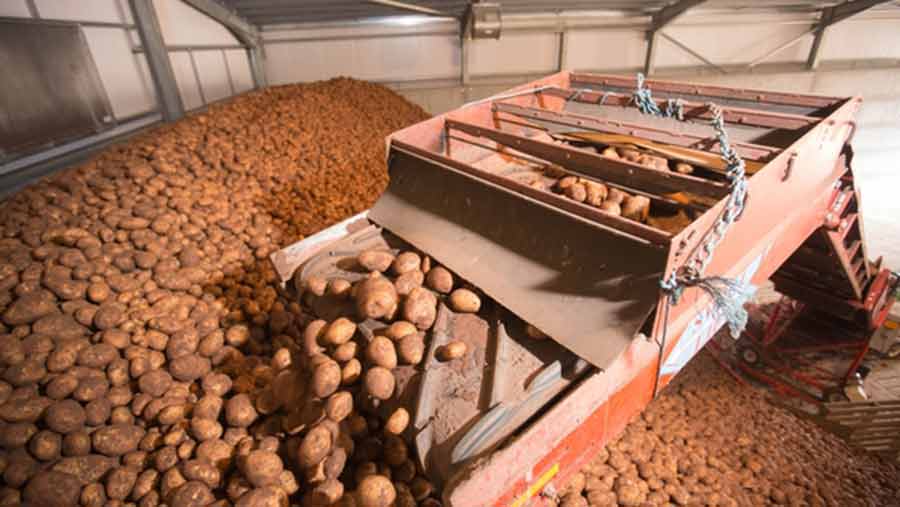Potato growers told to get ‘more mileage’ out of CIPC sprout suppressant
 © Tim Scrivener
© Tim Scrivener Getting “more mileage” out of a key potato sprout suppressant will be imperative when label changes come into force this season, growers have been told.
Subject to approval for the 2016-17 season, new statutory limits on total chlorpropham (CIPC) sprout suppressant dose will be lowered to 24g/t for the fresh potato market and 42g/t for processing.
The maximum total dose for processing potatoes will continue to reduce over the next two seasons to the EU level of 36g/t.
See also: How biofumigant crops cut nematode number in potatoes
The chemical is a vital tool to control sprouting and is applied to about 3.5m tonnes of potatoes stored each year.
“CIPC is still the best sprout suppressant available. We can get more mileage out of it,” says Adrian Briddon, secretary of the CIPC Stewardship.

Adrian Briddon
In addition to rates, he says that recirculation will also likely be a statutory label requirement from 2017 onwards, subject to Chemicals Regulation Directorate approval.
For many potato growers this would be a more critical change and could mean more forward planning is needed as a result.
“This has given rise to the ‘get active’ campaign to encourage the adoption of active recirculation when applying CIPC,” says Mr Briddon.
“It’s relatively straight forward in bulk stores, that may need an inverter fitted. However, overhead throw box stores are more problematic and unfortunately they are very common in the UK.”
He notes that air separators, in combination with low speed recirculation of fog, offer the most robust solution in box stores in achieving more uniform CIPC coverage.
Mr Briddon was speaking at the recent AHDB Potatoes Storage Forum.

